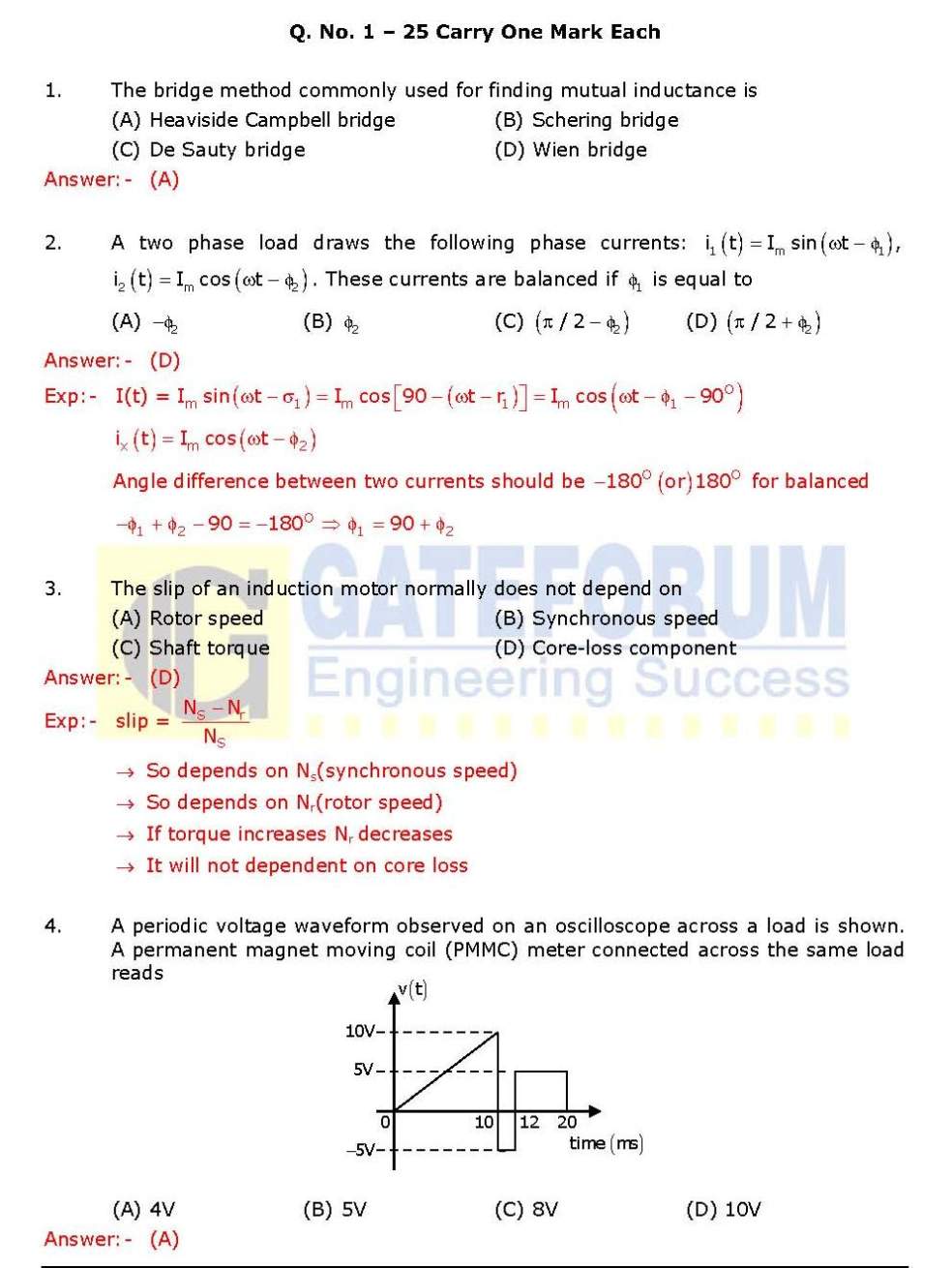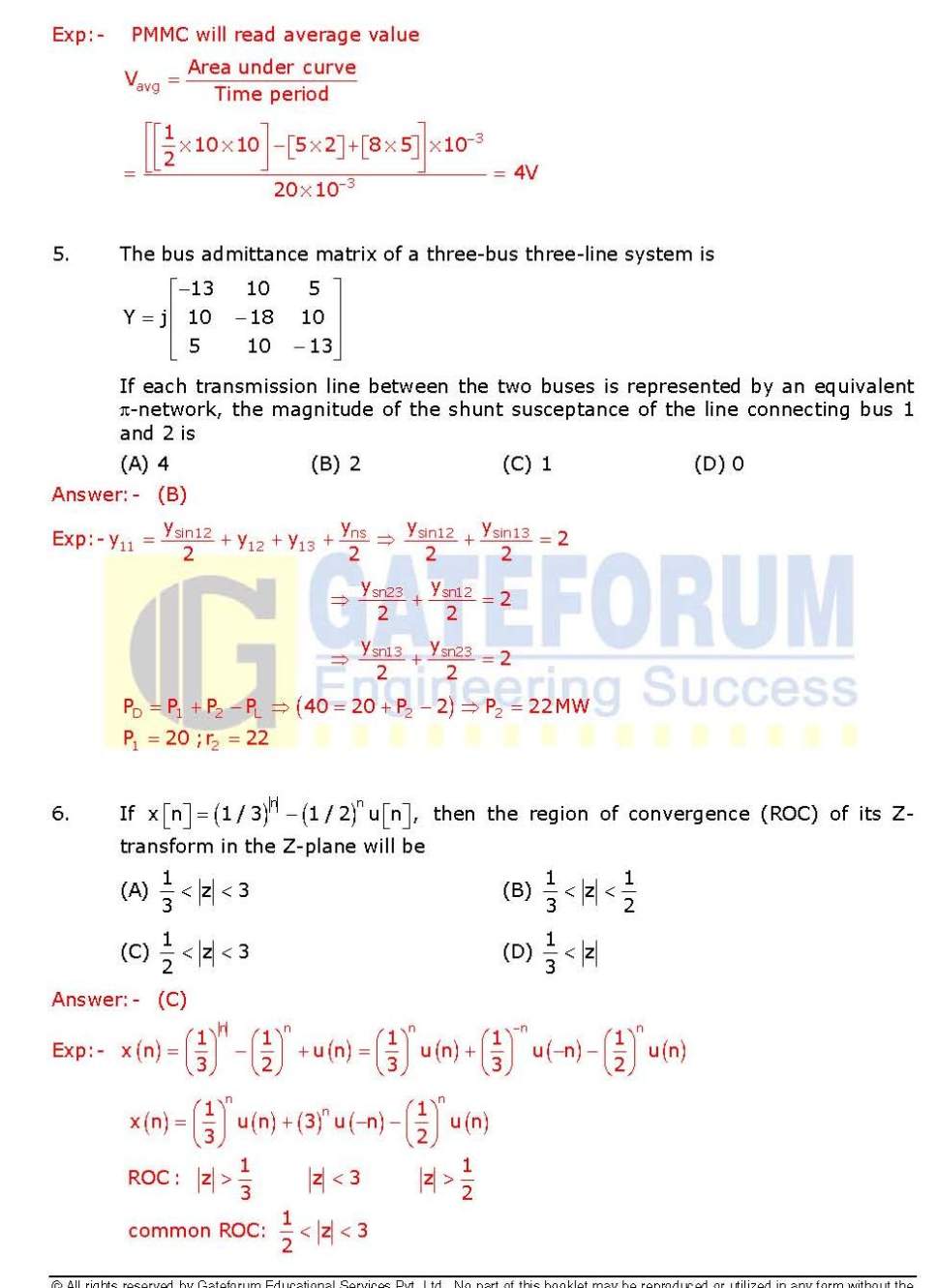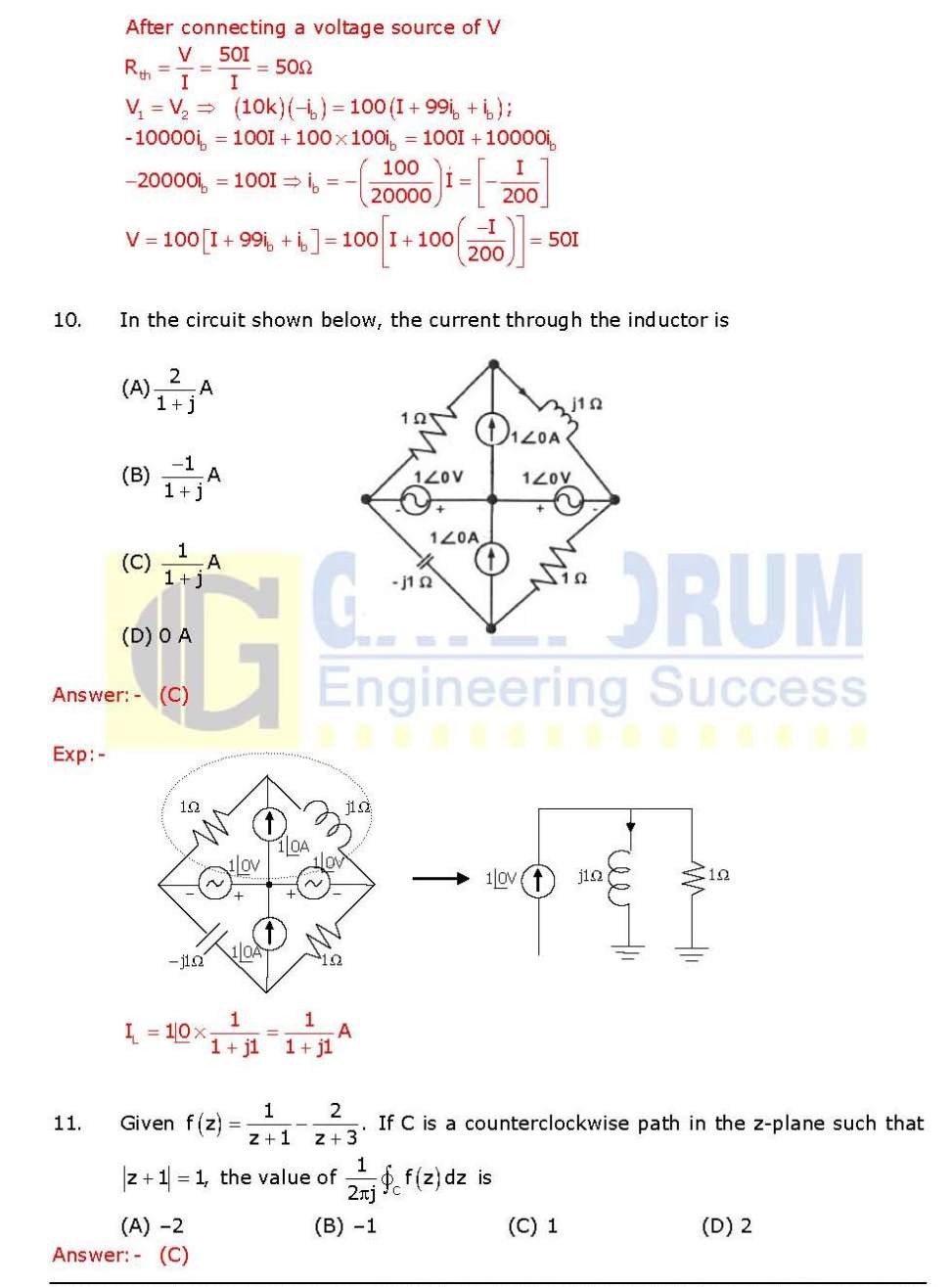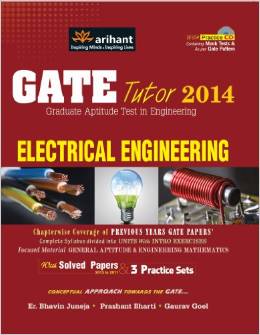Graduate Aptitude Test in Engineering (GATE) is a standardized test for admission in M.Tech course mainly while some companies also hires personnel via GATE exam.
Here, I am giving you some study material which can be useful for your GATE preparations.
GATE ELECTRICAL ENGINEERING – EE Syllabus
Engineering Mathematics
Linear Algebra: Matrix Algebra, Systems of linear equations, Eigen values and eigen vectors.
Calculus: Mean value theorems, Theorems of integral calculus, Evaluation of definite and improper integrals, Partial Derivatives, Maxima and minima, Multiple integrals, Fourier series. Vector identities, Directional derivatives, Line, Surface and Volume integrals, Stokes, Gauss and Green's theorems.
Differential equations: First order equation (linear and nonlinear), Higher order linear differential equations with constant coefficients, Method of variation of parameters, Cauchy's and Euler's equations, Initial and boundary value problems, Partial Differential Equations and variable separable method.
Complex variables: Analytic functions, Cauchy's integral theorem and integral formula, Taylor's and Laurent' series, Residue theorem, solution integrals.
Probability and Statistics: Sampling theorems, Conditional probability, Mean, median, mode and standard deviation, Random variables, Discrete and continuous distributions, Poisson, Normal and Binomial distribution, Correlation and regression analysis.
Numerical Methods: Solutions of non-linear algebraic equations, single and multi-step methods for differential equations.
Transform Theory: Fourier transform, Laplace transform, Z-transform.
GENERAL APTITUDE(GA):
Verbal Ability: English grammar, sentence completion, verbal analogies, word groups, instructions, critical reasoning and verbal deduction.
Electrical Engineering
Electric Circuits and Fields: Network graph, KCL, KVL, node and mesh analysis, transient response of dc and ac networks; sinusoidal steady-state analysis, resonance, basic filter concepts; ideal current and voltage sources, Thevenin's, Norton's and Superposition and Maximum Power Transfer theorems, two-port networks, three phase circuits; Gauss Theorem, electric field and potential due to point, line, plane and spherical charge distributions; Ampere's and Biot-Savart's laws; inductance; dielectrics; capacitance.
Signals and Systems: Representation of continuous and discrete-time signals; shifting and scaling operations; linear, time-invariant and causal systems; Fourier series representation of continuous periodic signals; sampling theorem; Fourier, Laplace and Z transforms.
Electrical Machines: Single phase transformer - equivalent circuit, phasor diagram, tests, regulation and efficiency; three phase transformers - connections, parallel operation; auto-transformer; energy conversion principles; DC machines - types, windings, generator characteristics, armature reaction and commutation, starting and speed control of motors; three phase induction motors - principles, types, performance characteristics, starting and speed control; single phase induction motors; synchronous machines - performance, regulation and parallel operation of generators, motor starting, characteristics and applications; servo and stepper motors.
Power Systems: Basic power generation concepts; transmission line models and performance; cable performance, insulation; corona and radio interference; distribution systems; per-unit quantities; bus impedance and admittance matrices; load flow; voltage control; power factor correction; economic operation; symmetrical components; fault analysis; principles of over-current, differential and distance protection; solid state relays and digital protection; circuit breakers; system stability concepts, swing curves and equal area criterion; HVDC transmission and FACTS concepts.
Control Systems: Principles of feedback; transfer function; block diagrams; steady-state errors; Routh and Niquist techniques; Bode plots; root loci; lag, lead and lead-lag compensation; state space model; state transition matrix, controllability and observability.
Electrical and Electronic Measurements: Bridges and potentiometers; PMMC, moving iron, dynamometer and induction type instruments; measurement of voltage, current, power, energy and power factor; instrument transformers; digital voltmeters and multimeters; phase, time and frequency measurement; Q-meters; oscilloscopes; potentiometric recorders; error analysis.
Analog and Digital Electronics: Characteristics of diodes, BJT, FET; amplifiers - biasing, equivalent circuit and frequency response; oscillators and feedback amplifiers; operational amplifiers - characteristics and applications; simple active filters; VCOs and timers; combinational and sequential logic circuits; multiplexer; Schmitt trigger; multi-vibrators; sample and hold circuits; A/D and D/A converters; 8-bit microprocessor basics, architecture, programming and interfacing.
Power Electronics and Drives: Semiconductor power diodes, transistors, thyristors, triacs, GTOs, MOSFETs and IGBTs - static characteristics and principles of operation; triggering circuits; phase control rectifiers; bridge converters - fully controlled and half controlled; principles of choppers and inverters; basis concepts of adjustable speed dc and ac drives.
GATE electrical Engineering good Books
1 Gate Electrical Engineering – Objective Ques. With Detialed Ans. Satish K Karna, Suman
2 Signals And Systems J. B. Gurung
3 Signals And Systems P Rao
4 Basic Electrical Engineering V Mittle, Arvind Mittle
5 Electrical Machines: Theory And Practice M. N. Bandyopadhyay
6 Electrical Power Systems: Theory And Practice M. N. Bandyopadhyay
7 Power System Engineering D Kothari, I Nagrath
8 Control Systems Engineering Nagrath I.j. & Gopal M.
9 Control Systems Engineering S K Bhattacharya
10 Control Systems Engineering, 4th Ed Norman S. Nise
11 Fundamentals Of Electrical And Electronics Engineering Smarajit Ghosh
12 Basic Electrical And Electronics Engineering Arvind Mittle
13 Electrical And Electronics Engineering Vikramaditya Dave
14 Modern Power Electronics And Ac Drives Bose Bimal K.
15 Spice For Power Electronics And Electric Power Muhammad H. Rashid, Rashid Hasan M
Here, I am giving you some good books for the GATE EE paper, please find question paper in attachment.
GATE EE 2013 solved paper 



 GATE EE 2015 paper
GATE EE 2015 paper
more papers detail to atteched a pdf file...........................







